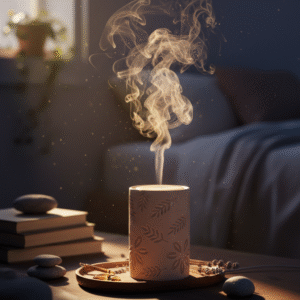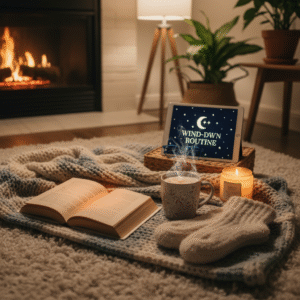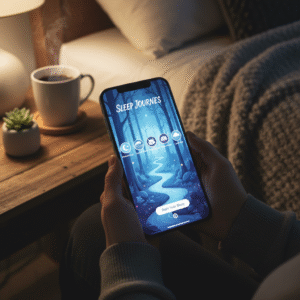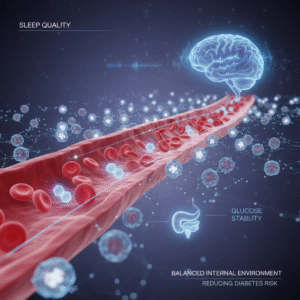Did you wake up feeling extra tired the Monday after the Super Bowl? You’re not alone. Nearly 40% of U.S. adults report feeling more fatigued than usual the day after the big game, according to a survey by the American Academy of Sleep Medicine (AASM). But why does this happen? Is it just the late-night kickoff, or is there more behind this national sleep slump? Let’s explore the science behind Super Bowl sleep deprivation, how it affects your body, and what you can do to recover fast and prevent it next year. The Super Bowl is one of America’s most watched events — combining sports, parties, emotional highs and lows, and an abundance of food and drinks. For many people, it’s more than just a football game. It’s an all-night celebration filled with activities that disrupt healthy sleep patterns. According to the AASM survey, almost 4 in 10 adults feel sleep-deprived the day after the game. But what’s causing the poor rest? Staying up late to watch the game throws off your circadian rhythm — the internal clock that regulates sleep and wake cycles. When you push your bedtime back by even a couple of hours, your body’s natural rhythm gets thrown out of sync. This disruption leads to lower sleep quality, less deep sleep, and grogginess the next day, even if you get a full 7-8 hours in bed. Super Bowl Sunday is a notorious food fest. High-fat, sugary, and spicy snacks — combined with alcohol or caffeine — can cause acid reflux, increased heart rate, and restlessness, making it difficult to fall or stay asleep. Plus, stimulants like caffeine (hidden in colas or energy drinks) can linger in your system for hours, making matters worse. From pregame coverage to postgame analysis — not to mention endless scrolling on social media — most of us are glued to our screens all night. This excessive screen time exposes us to blue light, which suppresses melatonin, the hormone responsible for helping you fall asleep. It’s easy to shrug off a single night of bad sleep, but the consequences are real. Studies have shown that even one night of poor sleep can impact your mood, attention span, memory, and reaction time. On a national level, the Monday after the Super Bowl has been associated with: If you regularly miss out on sleep during high-stimulation events like this, the effects can compound and lead to long-term problems like chronic fatigue, mood disorders, and even cardiovascular issues.Why Does the Super Bowl Affect Sleep?
Disrupted Circadian Rhythm
Late-Night Eating and Drinking
Screen Time and Blue Light
The Hidden Costs of Super Bowl Sleep Loss
How to Recover After Super Bowl Sleep Deprivation
1. Don’t Drastically Shift Your Bedtime
One of the biggest mistakes people make is trying to overcompensate by going to bed extremely early the next night. Instead, aim to gradually reset your sleep schedule.
Try shifting bedtime 15–30 minutes earlier over the next few nights until you’re back on track.
2. Take a Power Nap — Wisely
A 20- to 25-minute nap on Monday afternoon can restore alertness without interfering with your nighttime sleep. Avoid napping too late in the day, which can make it harder to fall asleep at night.
3. Get Some Sunlight in the Morning
Expose yourself to natural light early in the day. Sunlight helps recalibrate your internal clock and increases serotonin, which later converts to melatonin at night. Take a 15-minute walk in the morning or work near a window.
4. Eat Light and Hydrate
Focus on light, balanced meals the day after. Avoid heavy, greasy foods and sugary snacks. Drink plenty of water to stay hydrated and flush out any lingering alcohol or caffeine.
5. Avoid Screens Before Bed
If you want to fall asleep easier, ditch the screens at least an hour before bedtime. Try reading a physical book, stretching, or meditating instead. Dim the lights to encourage melatonin production.
How to Prevent Sleep Disruption Next Super Bowl
Instead of just reacting to fatigue, it’s better to plan ahead and minimize sleep loss proactively. Here’s how:
✅ Plan a Realistic Bedtime
Before the game starts, decide when you want to be in bed. If that means skipping the postgame interviews or recording the ending, your body will thank you.
✅ Limit Alcohol and Caffeine
Stick to low-alcohol drinks or mocktails, and avoid caffeine after mid-afternoon. If you’re hosting, offer sleep-friendly beverage options like herbal tea or sparkling water.
✅ Be Smart With Snacks
Go for lighter options like veggie trays, lean proteins, and whole-grain crackers. Skip spicy wings or salty chips right before bed — they trigger indigestion and disrupted sleep.
✅ Power Down Devices Early
Turn off TVs and phones shortly after the game ends. Set an alarm to remind yourself when it’s time to unplug and wind down.
✅ Create a Postgame Sleep Ritual
Establish a calming routine: wash your face, dim the lights, listen to soft music, or write in a journal. This helps your body shift gears from adrenaline to relaxation.
Conclusion
The Super Bowl is an exciting tradition — but it shouldn’t derail your sleep and health. With nearly 40% of adults feeling tired after the big game, it’s clear this isn’t just a one-off issue. By understanding the biological and behavioral factors that contribute to post-Super Bowl sleep deprivation, you can take simple steps to recover and protect your rest.
Sleep is a non-negotiable pillar of health — just like nutrition and exercise. So next time, enjoy the big game, but plan ahead. With a few small changes, you can avoid the Monday crash and start your week energized.
Frequently Asked Questions
How many adults experience sleep deprivation after the Super Bowl?
Almost 40% of U.S. adults feel more tired than usual the Monday after Super Bowl viewing, according to surveys.
What are effective ways to recover from Super Bowl-related sleep deprivation?
Prioritizing your bedtime Sunday night, avoiding heavy meals and stimulants near bedtime, and turning off electronic devices before sleep can help recover from Super Bowl-related sleep disruption.








